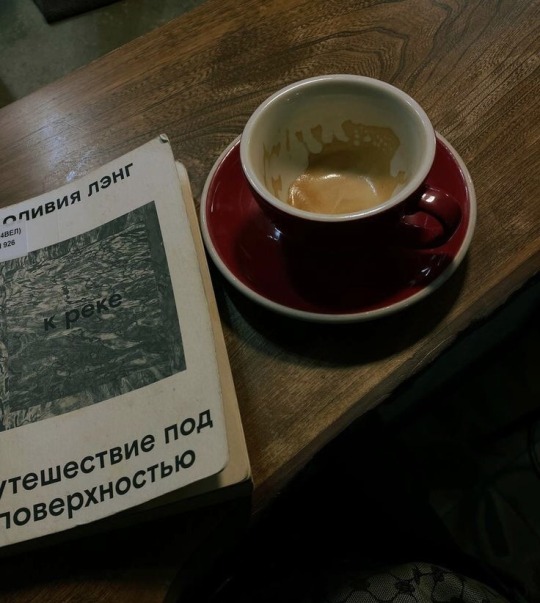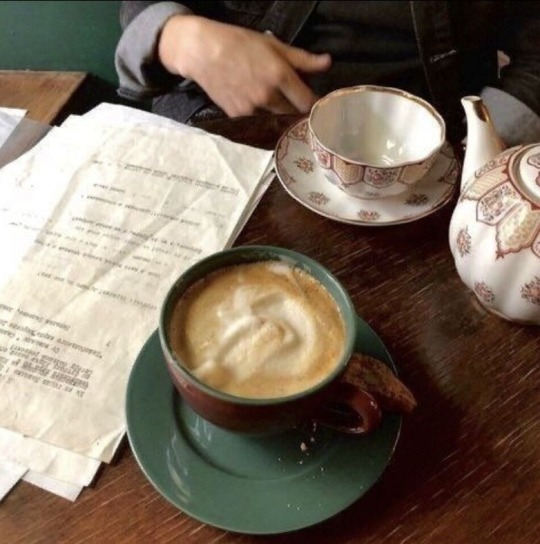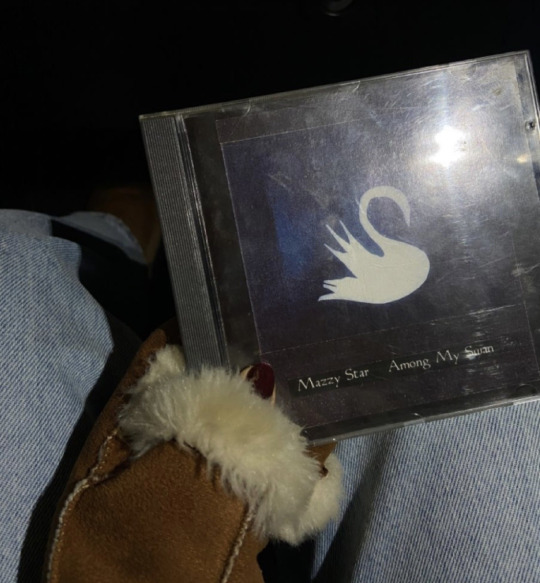#candlelight red
Explore tagged Tumblr posts
Text

The kings have regained their thrones after a one year absence! All hail G-N-F'nRoses!
Crazy enough ol' Hank III has been #2 all 4 years they been doing this 🤘
First time for CLR to break my top 3. If y'all haven't checked them out do so now.
Really surprised Breaking Ben dropped all the way to 4th from 1st. They are in almost all my playlists so it's kinda mind-blowing.
Papa Roach dropped out of the top 5 last year, glad to see them back.
1 note
·
View note
Text






#Red and green#crimson#i’m making moodboards again#Sorry#chaotic academia#dark academia#romanticism#books and literature#academia#classic academia#dark romantica#aesthetic#red academia#forest aesthetic#forest academia#cozy academia#cozy aesthetic#candlelight#vintage academia#rich colors#art academia#academia aesthetic#cafe aesthetic#books and reading#classic literature#literature
4K notes
·
View notes
Text




“𝖒𝖞 𝖈𝖆𝖓𝖉𝖑𝖊 𝖇𝖚𝖗𝖓𝖘 𝖆𝖙 𝖇𝖔𝖙𝖍 𝖊𝖓𝖉𝖘; 𝖎𝖙 𝖜𝖎𝖑𝖑 𝖓𝖔𝖙 𝖑𝖆𝖘𝖙 𝖙𝖍𝖊 𝖓𝖎𝖌𝖍𝖙; 𝖇𝖚𝖙 𝖆𝖍, 𝖒𝖞 𝖋𝖔𝖊𝖘, 𝖆𝖓𝖉 𝖔𝖍, 𝖒𝖞 𝖋𝖗𝖎𝖊𝖓𝖉𝖘 - 𝖎𝖙 𝖌𝖎𝖛𝖊𝖘 𝖆 𝖑𝖔𝖛𝖊𝖑𝖞 𝖑𝖎𝖌𝖍𝖙!”
#goth#gothic#goth aesthetic#dark aesthetic#horror#dark#grunge#aesthetic#candles#dark candle light#red candles#candlelight
2K notes
·
View notes
Photo

~ Red and Brown ~
122 notes
·
View notes
Text

Serena Reading
Artist: George Romney (British, 1734 - 1802)
Style: Rococo
Genre: Portrait
Date: 1785
Collection: Private Collection
"She always has her nose in a book and her head in the clouds." ~ Grace Metalious (1924–1964)
#portrait#oil canvas#leisure#book#woman#george romney#rococo#18th century#british painter#candle#hat#red chair#candlelight#fashion#dress
40 notes
·
View notes
Text
i need to learn to bake something new as everyone at work already knows i'm bringing them some carrot cake on friday....
#as some of u may have heard several times this month or any time the number 22 is mentioned its my bday on friday#so im baking something to bring to work#and i can bake more than just carrot cake#i think ive brought brownies to work more often than carrot cake. and ive also dabbled in chocolate chip oat cookies#and mokkapalat.#and yet#i saw my boss today and she jokingly was like ''haha i guess we'll be getting some carrot cake on our big planning meeting on friday''#which. hold on just to preface this i actually like my boss and she has my best interests in mind and shes v nice.#anyways i didnt even tell her id be baking smh. i mean i always bake something for work when theres a special occassion but still#and howd she guess it was carrot cake. ok probably bc thats my fave but still#i know i have a complaining tone in here but i think its funny and silly#i know i'm a predictable person but sometimes it manifests in weird ways#i did not know my carrot cake baking was THAT predictable#oh. i was thinking of going to the liquor store on fri bc its a tradition of mine and they have a new#cant remember if it was white or red but anyways some type of new seasonal flavor of wine glögg#i think regular glögg is superior but man can you imagine a red wine glögg with carrot cake#cozy spices...#especially since my carrot cake recipe is very winter-y as it has cinnamon and clove in it#i usually love lighting candles and getting cozy on the sofa as soon as the days get short#but i havent done that yet this year#can u imagine. little lights and candles on. red wine glögg and carrot cake. sitting on the sofa under a blanket.#watching something on the tv.#would love to read but its not ideal in candlelight#i usually like having a big light on bc i like to see but it's nice being in a dimly lit room when its dark anyways#leevi talks
8 notes
·
View notes
Text
“Telegraph Road 1977 & 2024” // “Red Wine & Wilde”
📹 Mafalda Azevedo
#bastille#dan smith#daniel smith#bastille dan#candlelight#telegraph road 1977 & 2024#red wine & Wilde#ampersand live
5 notes
·
View notes
Text



24-03-30
#personal#aesthetic#candle#candlelight#wax play#tw knife#knife#knifeplay#tw self harm#tw self h4rm#(i guess? i mean nothing bad happening here but red wax plus a knife could be iffy)#ropeplay#ropebondage#rope marks#self tie#it comes so much more naturally doing this just by myself and For Myself 🖤🖤#my photography#ju yappin
12 notes
·
View notes
Text
Sorry guys but going aimlessly around an IKEA store together looking for furniture you wont buy, dreaming of building your little cozy home and taking home every single silly peluche you find is actually the most romantic thing to ever exist
#screw intimate restaurant dinners with candlelights#screw romantic trips to Paris or red roses#ikea bee plush is peak romance trust me#lol#personal ramblings
5 notes
·
View notes
Text

#curators on tumblr#interiors#interior design#home design#candles#candlelight#decor#home decor#vase#flower#flowers#floral#red flowers#rose#roses#li_fooddrinks
18 notes
·
View notes
Text

━━━━━━⚘ᥫ᭡᭄∘˚დ━━━━━━
🤍 ‿. “Light the candle of love. Spread the rays of happiness in every direction in every breath.” – Amit Ray⁀🤍
━━━━━━⚘ᥫ᭡᭄∘˚დ━━━━━━
#her penetrating soul#candlelight#candles#candlelight dinner#wedding#wedding table#wedding photography#wedding inspiration#moonlight#roses#red roses#petals of love#soulful#soulful beauty#soulful love#soulful expressions#soulful sentiments#soulful moments
38 notes
·
View notes
Text






#red academia#city academia#red wine#lipstick stains#romanticism#romantic academia#candlelight#chaotic academia#dark academia#books and literature#academia#classic academia#dark romantica#aesthetic#romantic aesthetic#winter academia#light academia#dark acadamia aesthetic#chaotic academic aesthetic#brown academia#cozy academia#poetry aesthetic#vintage academia#roses#red roses#cafe aesthetic
902 notes
·
View notes
Text

Why don't you stay a moment.
#illustration#digital art#original art#my art#character design#artwork#drawing#dark aesthetic#gothic art#moody lighting#baroque vibes#dramatic lighting#red and black aesthetic#victorian gothic#portrait in a frame#candlelight art#mysterious vibes#haunted painting#elegant fashion#historical inspired art#gothic fashion#witchcore#victoriancore#dark academia#romantic goth#art nouveau vibes#steampunk aesthetic#art on tumblr#tumblr artists#indie art
3 notes
·
View notes
Text









x x x / x x x / x x x
Fizzmodeus stimboard with red and greyscale, with themes of love, alcohol, candlelight and the night, and various other stims they liked. Made for the Fizz and Ozzie in our system, but anyone is free to enjoy this! :>
9 notes
·
View notes
Text
Screwball September: Ratings, Reviews, and Rankings
I wanted to watch so much more this year than I did. I was really hoping to fit in at least a few more that I've never seen or hadn't seen in awhile. But that just didn't happen.
View the list on letterboxd
01. My Man Godfrey (Gregory LaCava, 1936) - 5/5

In my opinion, the greatest screwball comedy of all time, and with Carole Lombard's greatest performance. She remains perhaps the greatest comedic actress of all time, and all of the reasons why are perfectly apparent in My Man Godfrey. Her timing was impeccable, she wasn't afraid to look silly or ridiculous, and she had an innate understanding of when to go big and when to keep things a bit more subtle.
She and William Powell were also such a great pairing. They actually made a few films together, and we briefly married in the early 1930s. It's a bummer the movies they made together during the pre-code era aren't better known, but it's an even bigger bummer that this was the only screwball comedy they made together. Both are absolute legends when it comes to screwball comedy, so it really is just such a shame that they didn't make more together. Powell's more lowkey demeanor was such a perfect fit for the archetypical screwball leading lady that was Carole Lombard. That contrast lends itself to fantastic comedy.
The rest of the cast is amazing, too. I love Alice Brady as the flighty mother type, and she's probably at her best here. It's also one of the best Gail Patrick performances. She's such an awful person, and she really captures that sort of high class, unrepentant shittiness. Eugene Pallette played a lot of befuddled, frustrated father types, and this is one of the best roles of that type. He gets to be a sort of straight man played against his family, but since Powell is the movie's real straight man, he still has plenty of screwball moments to shine. Jean Dixon is pitch perfect as the seen-it-all maid, hitting a note that fits perfectly between the batty insanity of the Bullock family and Godfrey's more reserved world weariness. And of course there's Mischa Auer as Mrs. Bullock's 'protege', a ridiculous man who's made all the more hilarious by the way that Auer plays it kind of straight.
The script is perfect. It's just so packed full of jokes that you really need to watch it more than once to catch them all. And the characters really are so well written. I know some people struggle a bit with a lot of screwball comedies (and I admit, I do to), because for all the commentary on the wealth gap and how completely out of touch the rich are, the almost always end with the rich people finding better meaning for their lives, or understanding the plight of the poor, or the important of their family, whatever, without any suggestion ever being made that they maybe shouldn't have all that wealth when so many people were starving, and the poor main character usually ends up achieving wealth. That issue is still present in My Man Godfrey, but the writing for all of the characters does a really good job at making the ones that are meant to be likeable likeable, and giving the ones that really deserve it a very real comeuppance that humbles them. So I think it at least makes the ending feel consistent with the character writing at the very least. And it's an issue I never want to specifically hold against any individual movie, as it's a genre-wide problem, unless the writing really falls down at justifying it in any way.
02. The Lady Eve (Preston Sturges, 1941) - 5/5

Barbara Stanwyck and Henry Fonda are one of the most underrated screwball pairings, and really just screen pairings, ever. It's a shame they only made three films together (and that one of them is the pretty lackluster You Belong to Me). Both The Lady Eve and The Mad Miss Manton are screwball classics, and so much of what makes both movies work is the insane chemistry between Stanwyck and Fonda, as well as how good they both are at screwball comedy.
The Lady Eve has one of the sexiest film scenes to be made during this era, when the Production Code was probably being the most strictly enforced. The scene with Stanwyck and Fonda in her room, when she's on the bed and he's on the floor next to her and she's just kind of got her arms wrapped around his neck. Compared to what we get today this set up probably seems wildly tame, but Preston Sturges, along with Fonda and particularly Stanwyck, create such an amazing atmosphere for the scene. So much of that does come from the chemistry between the actors, but Stanwyck's performance in this scene is essential to just how sexy it manages to be. Add to that the way Sturges lit and framed the scenes, and it all comes across as being so intimate and sensual. But thanks to Fonda's performance, it's still perfectly screwball.
While The Lady Eve does dig into topics with some depth to them, particularly ideas of perception and how our pre-conceived notions of what's 'good' or 'respectable' can lead us to treat people in ways they don't deserve, the way it does that is so much fun. Stanwyck just feels like she was having such a good time. She and Fonda make such a good pair in this movie because they each bring something to the comedy. Stanwyck brings her incredible line delivery, her ability to make the character very much the cunning criminal she is while also having an unmistakable classiness to her, even when she's not posing as a member of the British aristocracy. Really, it's the fact that you can feel that class coming from her even in the beginning that makes her imitation of a British lady being so convincing so, well, convincing. The whip smart, clever wit of the screwball comedy comes from her, while Fonda brings a really impressive skill for physical comedy. And it's not just the bigger bits of physical comedy, like the pratfalls. It's his entire physicality. So much of Fonda's performance here IS physical. You can feel every bit of his nervousness, his anxiety, in the way he holds his body. It adds so much to the comedy of the movie.
It really is interesting to look at the things they each bring to this movie as a pairing, because when you look at their other stellar screwball comedy The Mad Miss Manton, their dynamic is extremely different and they bring very different things to those roles than they do here. It just makes it even more of a bummer that they made so few films together because clearly their chemistry was ridiculously versatile and adaptable.
This is simply one of the best romantic comedies and screwball comedies of all time. If you haven't see in it, you must.
03. Mr. and Mrs. Smith (Alfred Hitchcock, 1941) - 5/5

Hitchcock's only straight-up comedy is vastly, painfully underrated. The whole thing feels like an exploration on subverting the Production Code. The Code prohibited all kinds of things from the America screen. Anything that might have been too sexual was an automatic no go. Subjects like adultery and premarital or extramarital sex were off the table for years. A lot of writers and filmmakers started to get creative in trying to find ways to slip prohibited topics past the censors, and I think Mr. and Mrs. Smith is one of the funniest and most elegant attempts of subverting the code.
Basically, Carole Lombard and Robert Montgomery are married. But kind of not really because they find out that thanks to some bureaucratic, clerical messiness involving the place where they were married, their marriage isn't valid. Though only sort of because it's really just a clerical thing. But when Lombard finds out and learns that her husband has already been informed, she's expecting the excitement of their younger years and something like a romantic re-proposal. Montgomery, on the other hand, who doesn't know that his wife has been informed, is hoping to recapture some of the excitement of his unmarried years by taking Lombard to bed without remarrying her. She takes exception, leaves him, starts up a thing with his best friend, while he wallows in misery, has bad dating experiences, and tries to win his wife back.
Mr. and Mrs. Smith is quite audacious in the way it approaches its subversions of the Code. It definitely seems to take an Air Bud approach to the whole thing, getting around certain rules and restrictions based on the idea that if there isn't a rule specifically saying they can't do it, it's fair game. The script is very blatant in the way it not only has Montgomery and Lombard locked together in their bedroom in the morning, but also shows them in bed together. And Hitchcock's shooting of the scene takes great care to show the physical connection between them as they lay in bed together in each other's arms. That physical aspect of their relationship is shown again in the next scene, as Lombard slides her feet up the bottom of Montgomery's pant legs, until he says something to upset her.
That physicality is extremely important. That physical/sexual aspect of the relationship has to be clear, because that physical closeness has to be in your mind when you find out that they're kind of not really married. Following up the scenes that demonstrate that aspect of their relationship with the scenes where they find out they're not married highlights the first subversion of the code: This is essentially a story about a couple that had been engaging in premarital sex for years. This is only underlined by the fact that Montgomery is so excited by the idea of having sex with her before fixing the error and that Lombard is so horrified.
But they have to still mostly technically be married in order for this to get a pass from the Code office. So then they use that fact, too, to further subvert the code. After Montgomery's attempt, Lombard leave him, and quickly takes up with his best friend and partner. Which means, since their marriage issue is really just a technicality, we've got one of the main characters of the movie committing adultery.
And those really are just the most prevalent ways in which the movie lays with the Code in order to subvert it.
The movie, both in the ways it subverts the code and more specific aspects of it, really is about exploring gender roles, the way those roles might lead to certain behaviors being assigned within a marriage, the way certain attitudes that might be common with on gender or the other can impact a marriage, and how those kinds of things can impact the way a man and a woman might see each other. But rather than adhere to those more traditional ideas about what a husband is and what a wife is, both the husband and the wife turn out to be pretty awful people, and perfect for each other in that awfulness. This isn't an uncommon ending in remarriage comedies, but I think Mr. and Mrs. Smith is easily one of the best at really highlighting and even reveling in that awfulness, and really developing it in an interesting way.
This movie gets dismissed as a Hitchcock piece because the general idea seems to be that there's not much Hitchcock in it, that it's 100% about the script and that there's none of Hitch's touch, that his voice was not an important part of making the movie what it is. I don't think that's true. Sure, Hitchcock is mostly associated with suspense, but his films were more than that. There were some major themes that Hitch explores in most of his movies. Relationships between men and woman, the ways in which they're compatible and the many, many ways in which they're incompatible, as well as all the reasons they're drawn together. That is Mr. and Mrs. Smith all over.
When it's needed, their relationship, particularly their physical connection, is filmed with a similar softness and sensuality as some of his other films from this era. He might not be building suspense, but this movie is a series of situations where things like tension and awkwardness are made to build, and build, and build. And just as Hitch is a master at building suspense, he's able to build the tension and the awkwardness, sometimes to almost unbearable levels.
Lombard and Montgomery deserve so much praise. Montgomery is so funny. He just slides into the role so well, becoming more and more funny the more his character unravels. Lombard is, of course, masterful. She's one of the funniest women that's ever lived, and she's able to make her character likeable even as she's behaving in endlessly frustrating ways. They have great chemistry, and are and excellent comic pair, bouncing off of each other so well. Sadly, they'd never get a chance to make another movie together as Lombard died the next year.
Mr. and Mrs. Smith is one of Hitchcock's masterworks, and it deserves to be far better loved than it is.
04. The Mad Miss Manton (Leigh Jason, 1938) - 5/5

I love this movie so much. It might be my favorite screwball mystery. These screwball mysteries almost always have a love story happening along side the mystery, but how well that love story is developed and integrated into the story can vary wildly. I think The Mad Miss Manton manages the perfect formula for that.
A big part of that does come from the fact that Barbara Stanwyck and Henry Fonda re the leads. They're one of the best screen pairings of all time who, sadly, did not make as many movies as they should have together. They had crazy chemistry, and it was pretty adaptable. Their best remembered pairing is probably The Lady Eve, and they are AMAZING there. But I think the fact that their characters - and their relationship - in The Mad Miss Manton are so different from those in The Lady Eve really does show how incredibly and malleable their chemistry was.
But it's not just Stanwyck and Fonda that make it work. The script is really good. The trajectory of the relationship makes sense, and the way their feelings are developed and revealed thanks to specific points of the plot is what makes it all work together so well.
The mystery itself is also pretty good, which is something that can sometimes be an issue with screwball mysteries. It's intriguing enough to keep the viewer's attention on it, but it's not so overwhelming that scene that veer away from the mystery break up the momentum. And the resolution makes sense and it's easy to put the pieces together to understand how and why things went down.
There's so much else I could say about The Mad Miss Manton. In addition to its leads, it has a ridiculously good ensemble, all of whom get a chance to shine. There are some romantic scenes between Fonda and Stanwyck that have such an warm and intimate atmosphere. There are so many funny jokes. This is just such a gem of a movie, and it deserves to be as loved and revered as something like The Thin Man.
05. Carefree (Mark Sandrich, 1938) - 5/5

I LOVE Carefree. It's one of my very favorite Astaire/Rogers movies, and I think one of their most underrated. It has a sort of unique feel to it - not so much that it feels wildly different to the rest of their movies, just enough that it feels a bit refreshing - because, I think, Fred doesn't play a dancer in this one. He plays a psychiatrist, and that alone really does kind of shift the dynamic between his and Ginger's characters. It makes the plot have a little more going on than a lot their movies.
In my opinion, most of Fred and Ginger's movies do have distinct /feel/ to them thanks to their simplicity, which I think is a good thing most of the time. (and this is referring to the movies where they're the leads. Stuff like Follow the Fleet and Roberta, while similar, are kind of a different matter.) Even as there are often cases of mistaken identity leading to confusion, or Fred and Ginger being sort of forced together reluctantly (at least on her part), the stories usually end up being pretty simple and streamlined, and their relationship dynamics tend to be pretty similar in these situations.
Carefree, on the other hand, actually feels more like a romantic comedy of the era. Yes, there are some great songs and dances (I think Change Partners is one of the best songs from any of their movies, and The Yam is one of their most fun dances), but the movie is a lot less dependent on the musical numbers than their other movies. There's just more to this story, where Fred is a psychiatrist who agrees to treat his friend's fiancee, who seems to be struggling with the relationship and committing, and they fall in love. It allows for more to happen with the relationships in the movie outside of Fred and Ginger (Tony and Amanda, in the film), as they both have strong emotional ties to Stephen (Ralph Bellamy) and their relationship has an impact on that, and all of this in a way that you don't really see in other Fred and Ginger movie. It also ends up making Fred and Ginger's relationship so much more complex and interesting. It all makes for something that feels quite unique among all of Fred and Ginger's movies together.
I also think it deserve praise specifically for Ginger Rogers. This is easily her best performance out of any of their movies. I think at least some of that has to do with how much she's actually given to do, and I think that's also at least somewhat another thing that sets the movie apart. Not to say that Ginger has nothing to do in the other movies, but there's a lot more to her character and story here. I do think this is true of Fred as well, but I feel like, generally speaking, the way the characters, stories, and relationships are usually written in their films Fred just has more to do and is often centered a bit more. Carefree really takes Ginger's skills as both a comedic AND dramatic actress and leans into them. I think it's probably one of her top 5 best performances.
Of course, none of this is to say that all of the other movies that do have more simple storylines aren't good movies. Carefree isn't even my #1 Fred and Ginger movie. I still rank Swing Time and Roberta ahead of it, and I'd say it's tied with Top Hat for my #3. But it is refreshing to have something so different in their collection of movies.
06. Ruggles of Red Gap (Leo McCarey, 1935) - 5/5

One of Charles Laughton's best performances, if not his very best. He plays everything so understated, which ends up working brilliantly both comedically and emotionally. The cast around him helps to bolster his performance with their wonderfully over the top and boisterous performances. Taken all together they provide such a perfect balance to Laughton's more subdued presence, and that makes for great comedy on both sides.
Ultimately, Ruggles of Red Gap is about a changing world and how a person can find their place among those changes. This movie came out smack dab in the middle of the Great Depression, and even though it takes place around the turn of the 20th century, the influence of the Depression can be felt all over it. Ruggles moving from the world of the upper class in Europe to the American West mirrors, in a way, the way the economic crash had upended so many people's place in the social structure. Ruggles is the product of a world of tradition. His family had been in service to the family of his original master (played by Roland Young, who himself gives a really lovely performance that's kind of muted and even naturalistic in a way that's quite effective) and his devotion is born of that tradition and expectation. It's not until he travels to the new world with a new master whose behavior and manners are completely foreign to him that he starts to learn who he might actually be when allowed and even encouraged to follow his own path rather than serving someone else's. And like so many screwball comedies of the era, it's also a pretty scathing takedown of the pretentious arrogance that can come with wealth. Ruggles of Red Gap really is a movie made for Depression times, examining the freedom that could exist in breaking free from the traditional social structure and the idea that wealth is not by any means the thing that determines a person's value.
It's also funny as hell, so it's pretty much just firing on all cylinders.
07. Four's a Crowd (Michael Curtiz, 1938) - 5/5

I am so deeply fond of Four's a Crowd. So often with classic romantic comedies, even screwballs, the story would present a love triangle, or sometimes love square, but there would never be any question of who was going to end up with whom. Even if it's not blatantly clear from the writing, the fact that there are two megastars as the leads, with the other sides of the triangle or square played by much lesser known stars usually serves as a good enough hint of how things are going to play out.
That is not the case with Four's a Crowd. Right down to the very ending where we get a double wedding, it really does feel like a toss up when it comes to who's going to marry who. And while a good chunk of that is because Rosalind Russell, Olivia DeHavilland, and Errol Flynn were at roughly similar levels of fame, the biggest reasons it really works is (1) the script does such a good job of making the connections between the characters and the reasons they might be attracted to each other or see each other as viable options solid and easy to grasp, (2) there amazing chemistry going on between literally every possible pairing of these four people, and (3) the whole story and so much of what happens is just chaotic and frantic in the best way. It really does make it so that any combination of the characters feels viable in the end.
I really do think this is one of the most flat out fun screwball romances. It never once takes itself too seriously, the stakes established are relatively low, so the chaotic nature of the story and pacing feels fun and silly rather than stressful and nail-biting.
08. Wise Girl (Leigh Jason, 1937) - 5/5

Wise Girl is a seriously underrated screwball romance. Miriam Hopkins actually made a number of screwball comedies, but unfortunately she isn't really remembered much for them. And that's a shame, because she was ridiculously good in comedies. She could pull off a sort of natural sophisticated high society type, and then make that type perfect for screwball comedy by making her just a /bit/ ridiculous. I think that's best on display in Wise Girl.
I remember being surprised the first time I watched this by how good she and Ray Milland are together. I knew that Milland could handle comedy from movies like The Major and the Minor, but I wasn't expecting him to have so much chemistry with Hopkins. It's a typical opposites clash and then attract screwball romance, with Hopkins as the judgmental rich girl, looking down on the community of bohemians Milland lives in, and Milland as the judgmental artist, looking down on the conspicuous wealth and out of touchness of the the wealthy class of which Hopkins is a part. They both fill those roles really well, and it makes their chemistry work beautifully.
One of the things that I think is really special about Wise Girl is how much it creates this really great world with the bohemian community Milland lives in, and that Hopkins comes to live in, undercover as a poor artist. Most of the movie takes place in the Greenwich Village community, and it's imbued with such a sense of place that it really does feel like becoming a part of that community when you watch it. The set design is really great and goes a long way toward how successful this is, but it's also the supporting characters, the inhabitants of this world, that really make sit feel real. They're all so specifically and clearly drawn, and it doesn't take long to really understand who most of them are, and what their relationships to each other are. Which goes such a long way in making this community feel like a living, breathing thing.
This is such a good, underseen movie. If you get the chance to see it, you must.
09. By Candlelight (James Whale, 1933) - 4/5

James Whale is really not remembered for comedy at all, but he actually made a few really great comedies in the 1930s, By Candlelight being one of them. It's an extremely light and frothy romantic screwball comedy starring Paul Lukas and Elissa Landi. Lukas himself isn't particularly remembered for comedy, either, and while I do think his dramatic performances are the ones from his filmography that really stand out, he's quite good here. He seemed to understand just how light and fun the material was and matched his performance to it. Landi is also a lot of fun. I think her performance probably ends up being the most comedic in the movie, and she was really willing to do things that were pretty unflattering, but very funny.
Nils Asther is, IMO, the real treat here. He'd been a pretty big leading man in the late 1920s and early 1930s, particularly in roles where the character was "exotic" or otherwise foreign, by the time the pre-code era was starting to wind down in 1933-1934 his star was already dimming. So he's in a supporting role here, but it's a great role. He's Lukas's boss, who is a prince and a womanizer, but probably also the most likeable character in the movie. There's a clear affection between Asther and Lukas's characters, and it's kind of sweet to see the lengths Asther's character will go to in order to help Lukas's out. The character is really charming, but there's obviously a big heart there, and Asther really captures that.
But what makes the movie really work so well is the chemistry between Lukas and Landi. Because of the premise, both characters could easily end up feeling unlikeable, and the relationship between them would then be a pretty hard sell. But thanks to their performances and how much chemistry there is between them, it just works.
By Candlelight is a real treat of the late-pre code era, and one of the most underappreciated screwball comedies.
10. Make a Million (Lewis D. Collins, 1935) - 2.5/5

Okay, I just have to start by saying that if the headline 'Radical Professor Named in Charges by Girl Student" was in a paper today it would almost certainly be a very different type of story.
Make a Million is actually really interesting, especially for something from the 1930s. It as pretty common for screwball comedies to take the wealthy class down a notch or two by poking fun at the ridiculousness of wealth and how out of touch it makes people, but they're usually still quite light on their politics. Make a Million is pretty different in the way that it blatantly discusses political ideas surrounding wealth that were common at the time (and that are still sadly quite relevant). Most people think about the 'Red Scare' and the behavior and ideas of McCarthyism as being pretty firmly set in the 1940s and 1950s, but paranoia surrounding communism, particularly from those in charge and in particularly privileged positions, started way further back than that. And it was pretty prevalent in the 1930s, as the Depression had led to a lot of people wondering if socialism wouldn't be a better way.
Make a Million, for all its faults (and there are plenty), does a really good job of capturing that conflict and the downright ridiculous response those in power had to socialist ideas, and how quickly people in power would jump to and push absurd conclusions to bolster their position, even if it meant spreading around shit that wasn't true. Early on in the movie we see a group of those with power talking about the main character's, a professor, ideas and the 'radical' politics he espoused during a speech that was put on by a group called the World Improvement League. One character insists that the group is quite dangerous, as if he's already heard of them, only for us to find out just a minute or two later that The World Improvement League isn't really a group, and certainly not one with any influence or that could pose any 'danger', as it's something the professor made up to boost the profile of his speech. Which makes the other character look even more ridiculous when he later arrives at the professor's house and sees the address, declares it to be the headquarters for the 'dangerous' group. It's such a succinct but completely accurate piece of satire about the way those in power will rely on half truths, or even flat out lies, and reactionary behavior to shut down dissent. It's a sign that, again, for all its flaws, Make a Million had someone quite clever at least somewhere behind the wheel.
At the very same time it's blatantly pointing out that because the professor is poor he has no recourse if those in power want to go after him for his politics. By putting himself in their crosshairs simply by talking about politics that threaten his power he put himself at risk of not being able to afford to feed himself. The movie does a really great job of setting up the wild power imbalance between the haves and the have nots. It also highlights the way those in need are often demonized by those in power, who wield the press like a weapon, as a way to distract from how much the status quo hurts the common man.
Of course, even with how well so much of its politics is handled at points, there are some issues on that end. There's a bit where a panhandler decides to fake disabilities in order to get money in a way that feels like it was probably offensive even for. Considering what a good job this movie does at demonstrating the issue of the haves vs. the have nots and how capitalism is built to keep those without wealth down, it's disappointed that the poorest characters in the movie are presented in that way. Especially because it remains a thing through the whole movie.
The humor is hit or miss, with a lot more misses than hits. While I think most of the satire is really sharp and work incredibly well, the more general "screwball" bits tends to fall pretty flat. There's the aforementioned scene where the panhandler is faking disabilities that's pretty horrible. But there's also a pair of scene that I think are pretty solidly funny where those panhandlers are learning to behave like a wealthy board of the directors, and then their attempts in action. The panhandlers trying to mimic rich people is a lot funnier than them trying to mimic disabled people. There's one moment that I laughed out loud at where they're all talking with the bank about ways to invest the money, and at one point one of the bankers asks how they feel about copper, and one of the panhandlers responds by saying "I don't want anything to do with coppers! I'd rather not take a change with them!" In general, the movie seems pretty anti-cop. It's a very funny series of set ups and punchlines that works really well. Which just makes it all the more disappointing that there's so much humor here that just does not work.
There's also absolutely nothing about the romance that works. Initially it seems like there might be a fun rivals to lovers thing, and their mutual hatred for each other did allow for a fun chemistry early on. But the female lead character is just so unlikeable. She's a wealthy little capitalist whose ideas and behavior are downright hateful. And then all of a sudden she just magically disagrees with her father and is on the professor's side now with pretty much no reason. The thing she ends up objecting to isn't anything different than things she'd said herself. It also just feels entirely shoehorned in, as romances were kind of mandatory when it came to movies from this era for the most part.
The ending is... pretty disappointing, but unsurprising. For all their criticism of the wealthy, screwball comedies usually still end with a pretty soft touch. The wealthy people might have learned to appreciate things other than money or something like that, but in the end you never really see any wealthy character deciding to redistribute their wealth, and usually the poor characters end up earning wealth. So the ultimate message still ends up being that being a part of the wealthy class is the ideal, and sadly Make a Million follows the same path. In the end, the professor finds that he can create wealth for himself by turning his charitable fund into a business, which just feels like an ending that smacks every single bit of political satire in this movie in the face. It feels like an ending that had to have been mandated by the studio because it's so out of pace with everything preceding it.
This is a tough one to rate. I think I'm going to settle on 2.5/5. When it's really digging into the satire it's one of the most sharp and clever movies from the 1930s I've seen, and one of the most unflinching in its liberal politics. But almost everything outside of that satire falls pretty flat, and the ending almost feels like a betrayal of everything that came before it. I am going to go ahead and give it a 'like' though, because its satire is so damn good.
#lists#screwball september#classic film#classic movies#screwball comedy#my man godfrey#the lady eve#mr. and mrs. smith#the mad miss manton#carefree#ruggles of red gap#four's a crowd#wise girl#by candlelight#make a million#my movie and tv stuff
5 notes
·
View notes
Photo

London Red Candlelight (#da291c to #fbe122)
15 notes
·
View notes